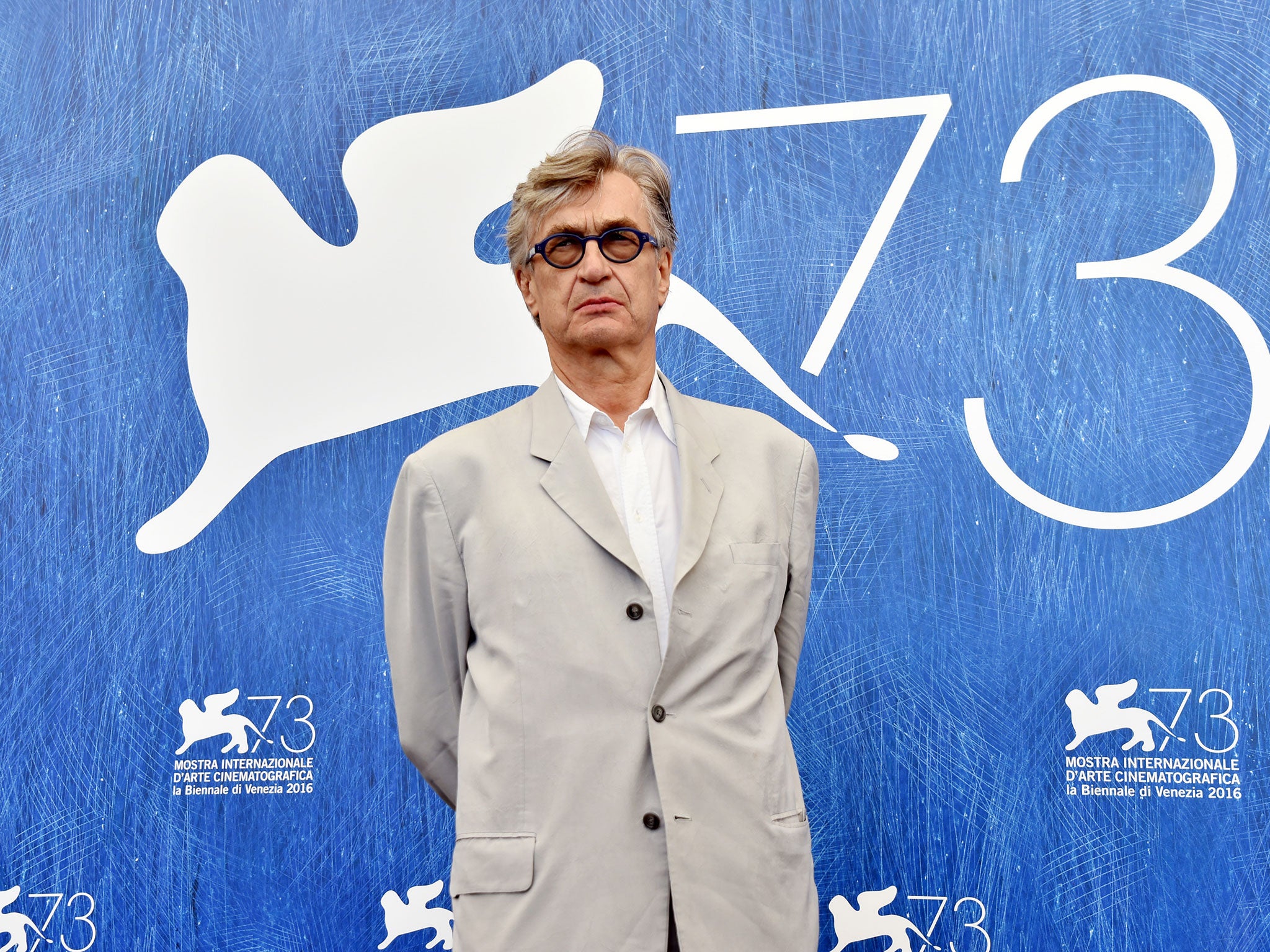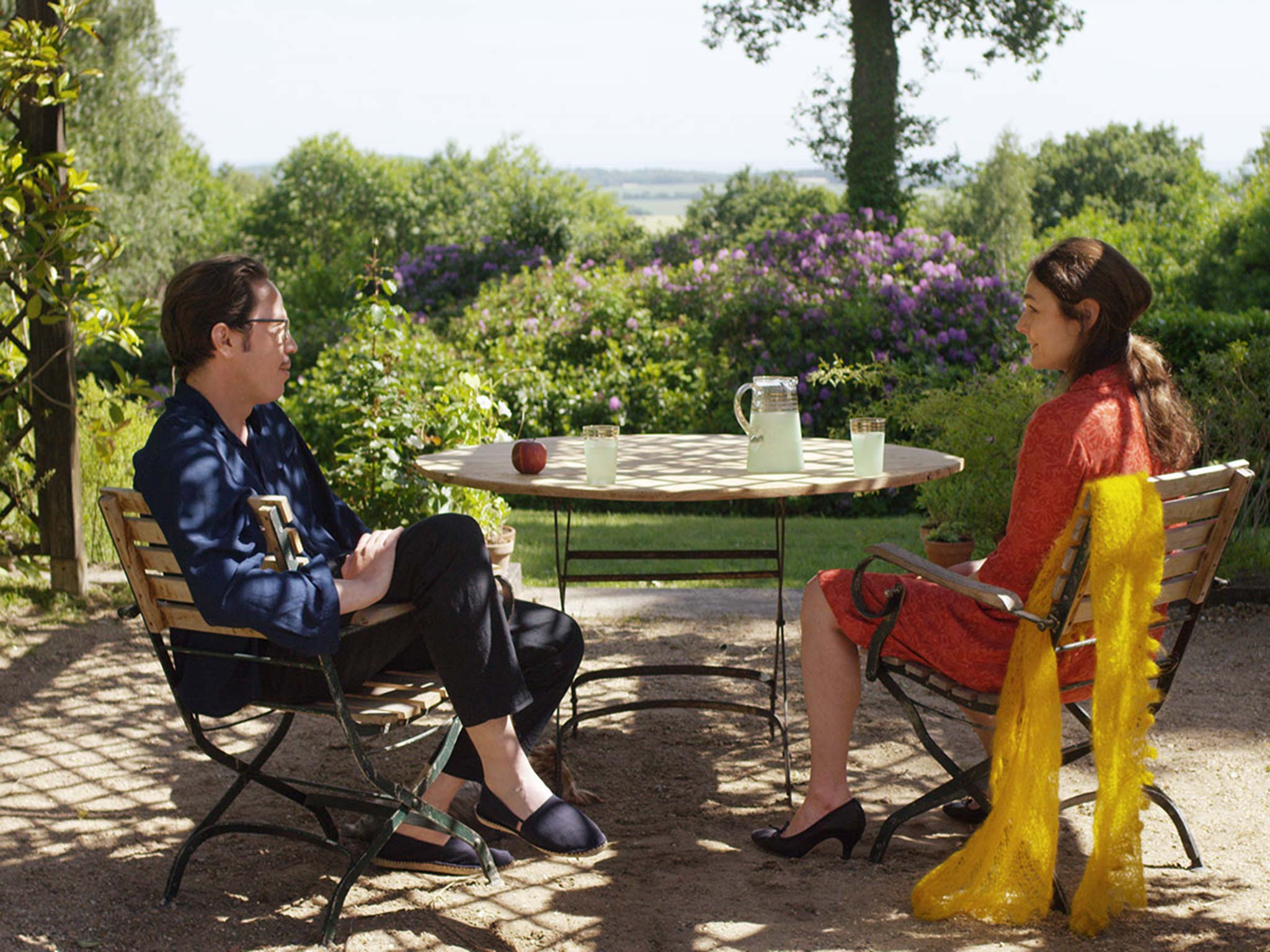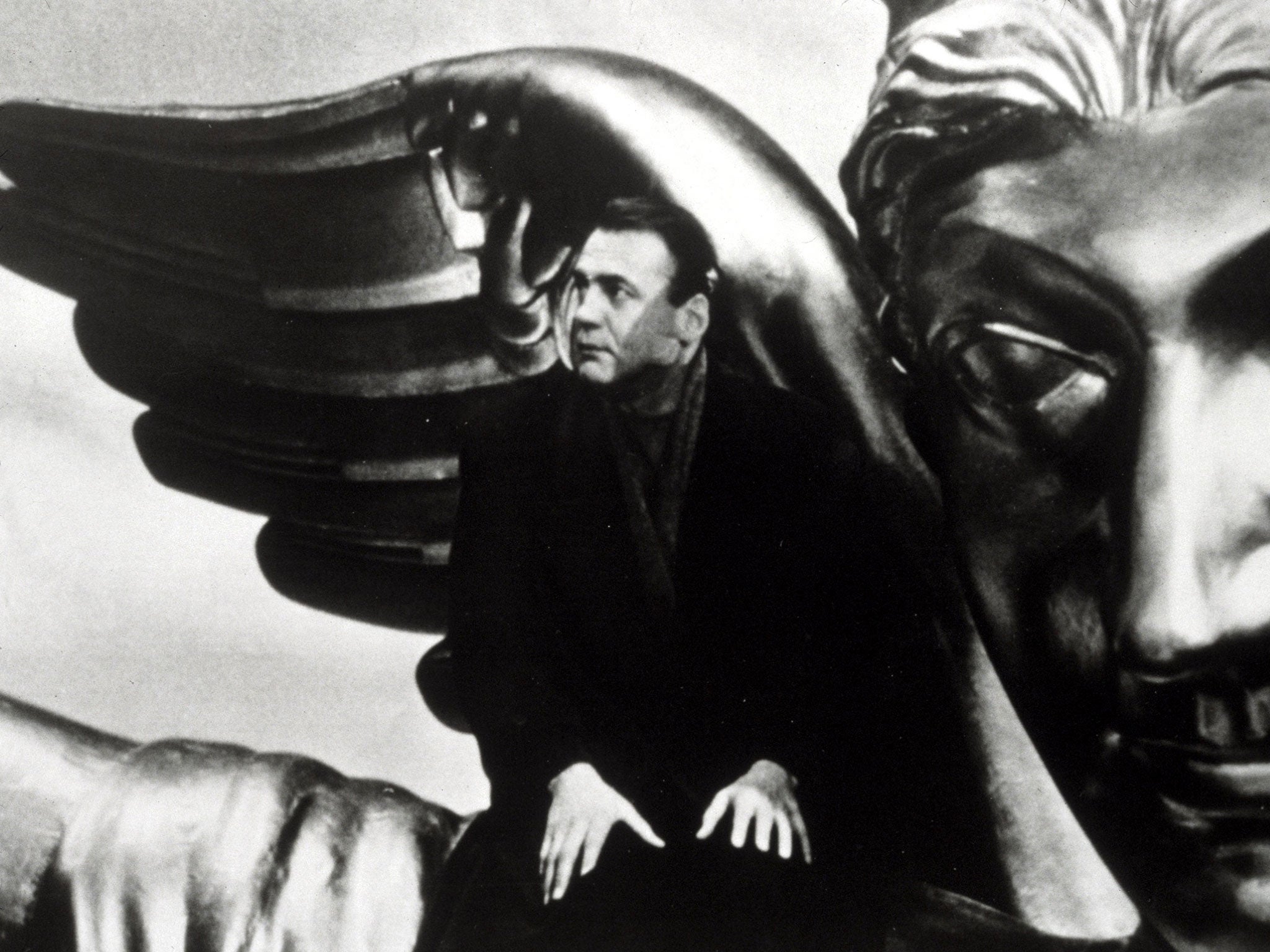Wim Wenders interview: The director talks about his new film Les Beaux Jours d’Aranjuez and all things Venice Film Festival
After the chaos of the 71-year-old German's first Venice experience, these days he can enjoy a more comfortable festival

Wim Wenders’ relationship with the Venice Film Festival began in very inauspicious circumstances. The German director (the director of such classics as Paris, Texas and Wings Of Desire and whose latest feature Les Beaux Jours d’Aranjuez premiered in Venice this week) first came to the festival over 40 years ago. His movie The Goalkeeper’s Fear Of The Penalty (1971) was playing but Wenders didn’t make it to Venice in time for the screening.
“I was shooting my next movie in Spain so I took a plane. I arrived at the airport. Nobody was waiting. Nobody knew my name. I made my own way to the Lido (the festival’s base). I took public transportation. I arrived at the theatre… and the film was over.” The audience had left. The only two people still around were the leading actor and actress. The latter was crying and her make-up “was all fucked up”. The former was in a rage. “He had started to drink. They said ‘you fucking idiot. This is our only chance’. For the first time we were at a festival – and nobody was there. Nobody took our picture, nobody asked a question.”
The next day, Wenders left the festival. Neither he nor his cast had done a single interview. His most vivid memory of the trip was being woken up at 5am by the police. They wanted him to come down to the station to confirm that the German man who had been arrested for being drunk and disorderly the previous evening (and who had beaten up the bar keeper at the Excelsior Hotel) really was the actor in his movie.
Wenders departed with his tail between his legs. Several months passed. A strange looking package that had been re-addressed many times was delivered through the post. It was the international critics’ award from Venice. He’d won it without even knowing and the prize had finally reached him.

Interviewed on a broiling afternoon in the shade in an upmarket Venice hotel, Wenders, now 71, is treated with a deference that he could have dreamed of in the early 1970s. Publicists scurry around him, making sure that he is comfortable.
His new film, just like the one he brought to Venice all those years ago, was written by his friend, the playwright Peter Handke. It’s a meditative chamber piece, set in a garden just outside Paris. A writer is sitting inside, typing as he looks out the window. As if coaxed into being by his imagination, a man and a woman materialise on the terrace. In the course of the film, they have a long, rambling discussion about their childhood memories and the differences between men and women. They’re recalling their early sexual experiences.
James Cameron’s Avatar this is not but Wenders has still shot it in 3D. I ask him why.
“In my conviction, 3D is the most tender, gentle and friendly language the cinema has ever invented,” Wenders declares, speaking very fervently in spite of his otherwise mild-mannered demeanour. “Unfortunately, it is never used to that purpose but always for the opposite. It is a cold, violent medium, used for kids and not adults. It is always being used and abused.”
It is Wenders’ conviction that 3D is the filmmakers’ best tool for representing nature and that it has an intimacy that 2D lacks. “Your eye is more guided, you’re more concentrated, you’re more looking at the faces of the actors. The 3D makes you follow the conversation more immersively…in 3D, other parts of your brain are involved. You are participating in different ways and parts of your brain that are completely dead when you watch a flat movie are also active.”

Not that Wenders is forsaking conventional 2D storytelling altogether. His next film, Submergence, due to come out next year and starring Alicia Vikander and James McAvoy, is in 2D. This is a dark romantic thriller about a water engineer in Somalia kidnapped by Islamic jihadists. “We try to understand these people – of who they are and why they think like they do,” he says of the intentions in making the movie.

Watch Apple TV+ free for 7 days
New subscribers only. £8.99/mo. after free trial. Plan auto-renews until cancelled

Watch Apple TV+ free for 7 days
New subscribers only. £8.99/mo. after free trial. Plan auto-renews until cancelled
Les Beaux Jours is in a very different register. It begins in poetic fashion with shots of empty Paris streets at dawn as his friend Lou Reed’s song Perfect Day plays on the soundtrack. This, Wenders explains, is a small homage to Reed (who died in 2013.) The film also has an appearance from Nick Cave, a regular collaborator with Wenders (and who first worked with him on Wings Of Desire.) The music in the film comes from a jukebox. Cave’s song Into My Arms (“one of my favourite love songs ever”) is one of the records on the writer's jukebox but the gaunt and imposing Australian musician suddenly appears in person at the piano.
Wenders describes the jukebox as “almost another character” in the film. When he was a young filmmaker, before he was able to store 18,000 songs on his smartphone, he used to haunt bars which had jukeboxes. That was sometimes the only way to listen to music. “I called it [the jukebox] a life-saving machine. I still have an emotional relationship to this old machine.”
The German director describes himself as “the opposite of nostalgic”. For all of his use of devices like a typewriter and a jukebox in Les Beaux Jours, he has fully embraced the possibilities of digital filmmaking.
A proud European, he also clearly has a very ambivalent relationship with US culture in general and with Hollywood in particular. In one of his 1970s films, Kings Of The Road, there is a famous line, “the yankees have colonised our subconscious”. I ask him if, 40 years on, he is still distrustful of US cultural hegemony.

“To reduce the yankees to Hollywood is maybe totally appropriate today,” Wenders mulls the question. “A lot of opinions that people have today, American opinions, are formed by movies. Even the American way of life is an invention by the movies.”
Wenders then begins to speculate about new technology, the movies, the movies and human development. “Present culture is being invented by media and movies are still a very important part of the media. More and more, we are a product of technology and very soon it will enter in our genes. Already, I see it in my tiny grandchild. The little guy is two years old and he operates the iPad better than I do. Nobody showed him… he enters and knows his way. It is like his genes understand. Nobody showed him how to open it or bypass the security. He does things that you would not believe.”
Wenders can’t judge whether this is for “the better or for the worse” but he is certain that technology is changing the “basis of our thinking…it changes our memories, our relations to first hand experience. We are still a generation that can touch a tree and cherish this first-hand experience”. For his grandson, though, first-hand experience doesn’t matter so much. The image is more important than “the real thing, which bothers them. Things will change more than what we want. Who knows what two or three generations from here will think of first-hand experience, of touching things, of being somewhere for real,” he says the word with an exaggerated emphasis. On this note, the interview is brought to an end by the deferential publicists. On this occasion, unlike on his first visit, everyone knows he is in town.
Join our commenting forum
Join thought-provoking conversations, follow other Independent readers and see their replies
Comments